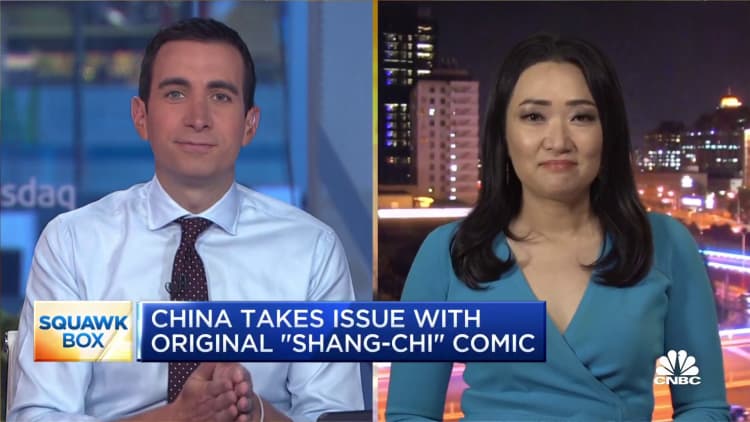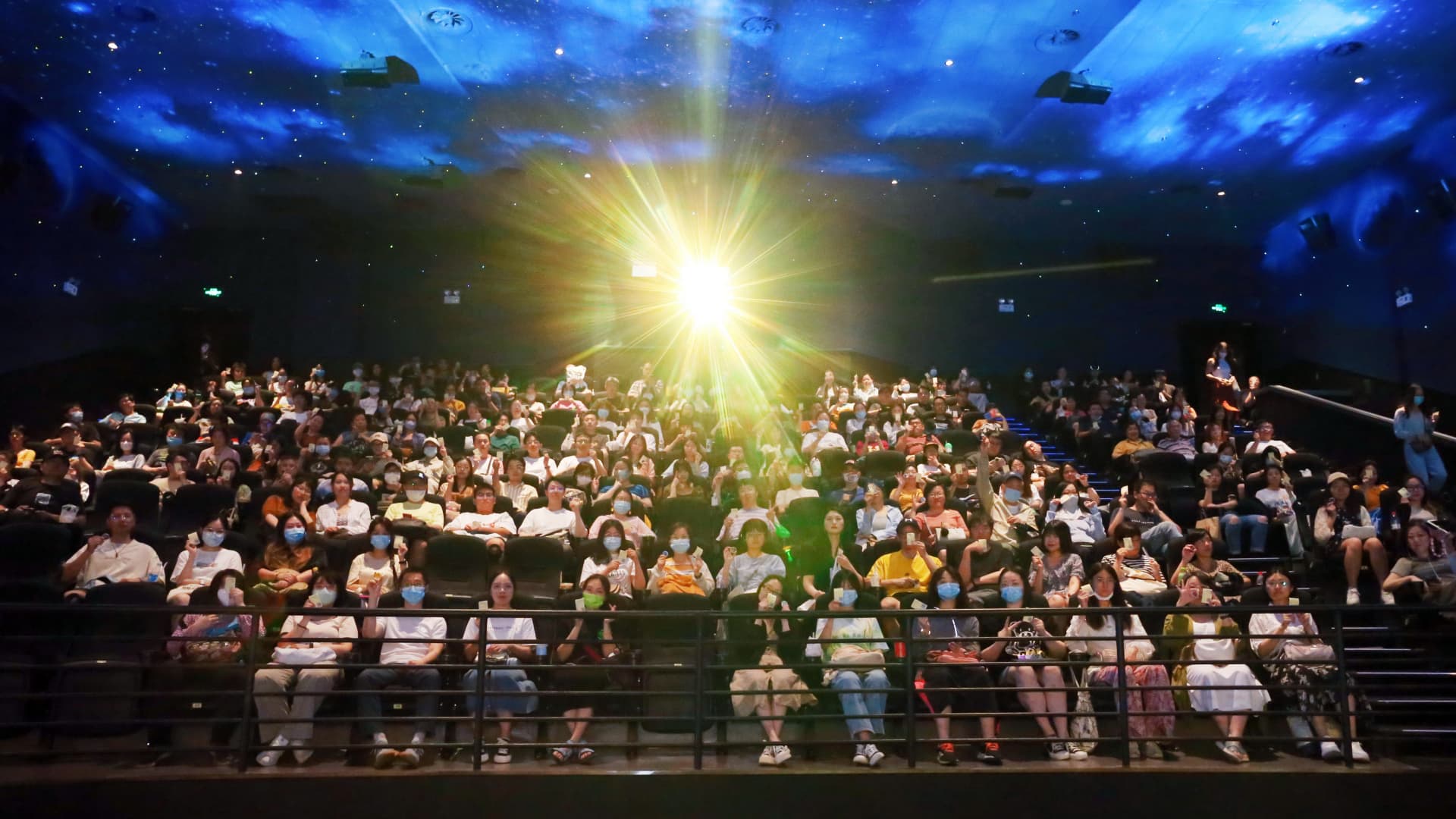Fans watch a movie at a cinema in Shanghai, China.
Future Publishing | Future Publishing | Getty Images
Women are fueling China’s box office despite making up a smaller share of the population — and Hollywood should take note.
While women account for less than half of the Chinese population, they represent 52% of monthly moviegoers, according to Morning Consult, which surveyed 681 monthly moviegoers between July 21 and 25.
The higher-than-expected box office spending by Chinese women not only shows a cultural shift, but also a new entry point for American studios. Hollywood has struggled to regain its foothold in the country after pandemic shutdowns, as China developed its domestic film industry and limited the number of foreign films allowed in theaters. Tapping into this new trend of female moviegoers in China could be a new strategy for Hollywood.
Morning Consult determined that female audiences in China are interested in science fiction and action films, on par with their male counterparts, but over index in interest in romantic comedies and musicals.
“Which I think speaks to why ‘Barbie’ recently was able to take off in that country, like it did in many other places,” said Kevin Tran, senior media and entertainment analyst at Morning Consult.
While Warner Bros.’ “Barbie” has collected only around $35 million so far in China, Tran suggests studios could look to capitalize on a demographic that is being underserved in the marketplace.
“Purchasing power of women in China has been increasing for several years,” Tan explained. “Fewer women are getting married. So there’s, I think there’s just more independence, and I think that with China’s still being a country that has prioritized traditional gender roles … there’s more time to be had for leisure and things besides domestic or house care type of responsibilities. Which just gets so they’re able to do other things, like go to the movies, or just spend money on themselves in a way that they might not have been able to previously.”
Morning Consult noted that its survey indicated that 32% of Chinese women reported going to the movies three or more times in the month of July, compared with 27% of men.
“Given the difficulty nonlocal studios face in nailing down specific cultural norms and pop culture references in China, it could make sense for U.S. studios to more heavily invest in Chinese productions of musicals and romantic comedies as a longer-term strategy,” Tran wrote in his report. “These investments would be one way to ensure that studios’ slates are balanced with genres beyond the typical big-budget action blockbusters they’ve traditionally relied upon for global box office success.”
Of course, Tran said that Hollywood shouldn’t completely rewrite it’s playbook to cater to one country’s cinematic inclinations. After all, American audiences have rebuked studios for altering or even cutting scenes from films in order to cater to Chinese censorship rules.
In order to be distributed and screened in China, films must be approved by regulators and could be censored if they contain content that officials deem violates its core socialist values or detracts from its nationalistic image.
Several major blockbusters, including Marvel’s “Black Widow,” “Shang-Chi and the Legend of the Ten Rings,” “Thor: Love and Thunder,” “Doctor Strange in the Multiverse of Madness” and Sony’s “Spider-Man: No Way Home,” were barred from Chinese theaters.

Before the pandemic, Chinese audiences were consistently responsible for around 15% to 20% of global hauls for big blockbusters, especially in the Marvel Cinematic Universe. For the most recently released Marvel film, “Guardians” of the Galaxy: Vol. 3,” ticket sales from China accounted for just 10% of the film’s total haul.
As movie theaters reopened in the wake of the pandemic, Hollywood has been quick to offer up superhero and action films to Chinese audiences to middling success. While Disney’s “Avatar: The Way of Water” snared more than $200 million during its theatrical run in the country, few others have come close to that figure, or even crossed the $100 million mark.
China resumed importing Hollywood films at pre-pandemic levels this year, but ticket sales during the first half of 2023 are down nearly 70% from the same period in 2019, according to film industry advisory group Artisan Gateway.

